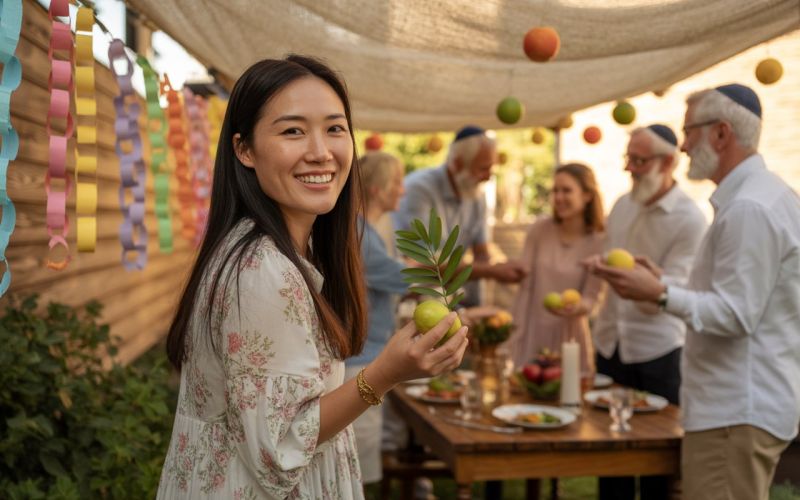Sukkot: A Time to Rest, Reflect, and Connect — for Caregivers in Israel
iSavta | 06.10.2025

If you are working in Israel during Sukkot, you might notice changes in the daily rhythm, shifts in community life, and opportunities to pause. Sukkot is a seven-day festival (in Israel) that often brings a more relaxed pace and a spirit of joy.
Below is a simple guide to Sukkot and some reflections for caregivers living and working here.
What is Sukkot?
-
The word Sukkot means “booths” or “huts.”
-
The holiday falls five days after Yom Kippur.
-
It is both a harvest-time celebration and a commemoration of a time when people lived in temporary shelters.
-
One of the main customs is to build a sukkah (a temporary booth or hut) and spend as much time as possible in it — eating meals, relaxing, or even sleeping (weather permitting).
-
Another ritual involves the Four Species (plants) held together each day (except on the Sabbath) as a symbol of gratitude.
What Sukkot Means for You as a Caregiver
When you are caring for someone, your days can feel very full. Sukkot offers small openings to rest, reflect, and remember that life also has seasons beyond work.
Here are some ways caregivers can find meaning or relief during Sukkot:
-
Notice the shift in the holiday atmosphere
Because Sukkot is one of Israel’s national holidays, you may see fewer cars on the roads, quieter streets in certain neighborhoods, or local businesses closing for some days. Use these slower moments to take deeper breaths. -
Use small moments to recharge
Even if you cannot leave your workplace or the patient’s home, you might step out briefly to a balcony or yard to enjoy fresh air, see the sky, or feel sunlight. That “booth” feeling reminds us of temporary shelters — it is okay to pause, even briefly. -
Share something simple
If the person you care for is able, you might bring a small treat into a “special corner” (a mini sukkah idea) — maybe fresh fruit or something symbolic — even if you can’t build a full booth. A small gesture can lift spirits. -
Reflect on impermanence and gratitude
Because the sukkah is temporary, it can be a reminder that tough days will pass, and that small comforts matter. Reflecting (quietly or in a journal) on what you have — good health, a friend, a moment of peace — helps strength. -
If your day off or rest time falls during Sukkot
Plan something you enjoy — maybe meeting a friend, going for a walk in a garden or park, or simply resting at home. The holiday invites moments of joy and rest. -
Be gentle with yourself
You are doing meaningful work. Even if you can’t fully “observe” all customs, knowing what the holiday is about can help you feel more connected to the life around you and calmer in your heart.
Practical Notes & Tips
-
The first day (in Israel) is a full holiday, meaning many public services may pause, and public transport may run less often.
-
During the “intermediate days” (called Chol HaMoed), many people resume some normal activities, but still keep the spirit of the festival.
-
If weather is bad (rain or strong wind), the custom of dining or sleeping in the sukkah may be waived. Comfort and safety come first.
Sukkot is sometimes called Z’man Simchateinu — the Season of Our Rejoicing. It reminds us that life has seasons: times of work, times of hardship, and times of celebration.
As a caregiver in Israel, you bridge cultures, homes, and hearts. Even small moments of rest, gratitude, or pause during Sukkot can help you recharge, see strength you didn’t know you had, and nurture hope.











